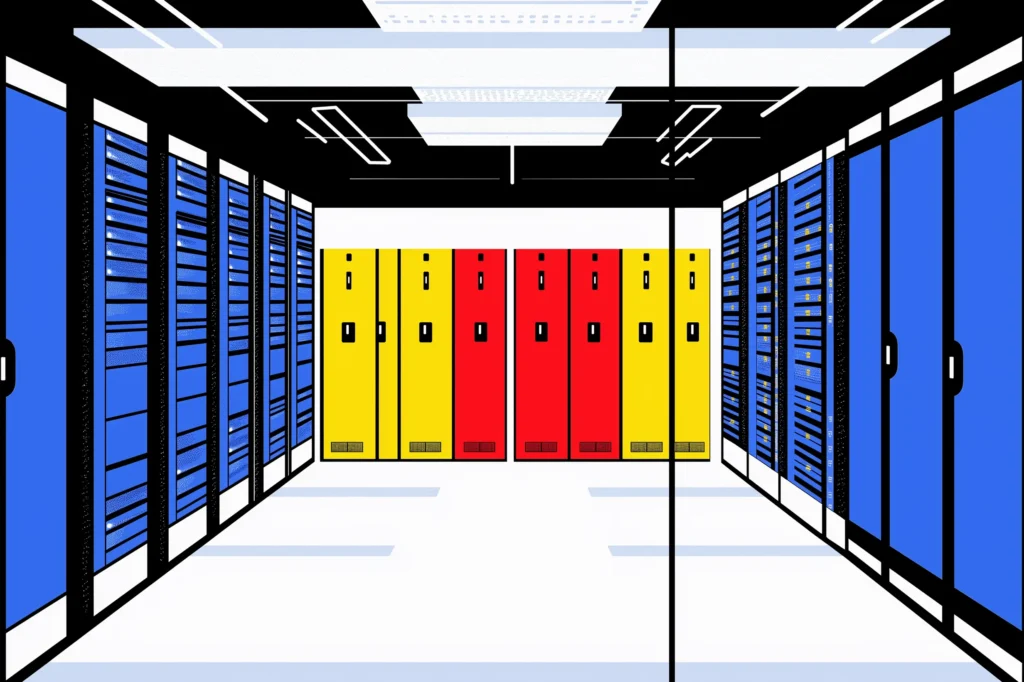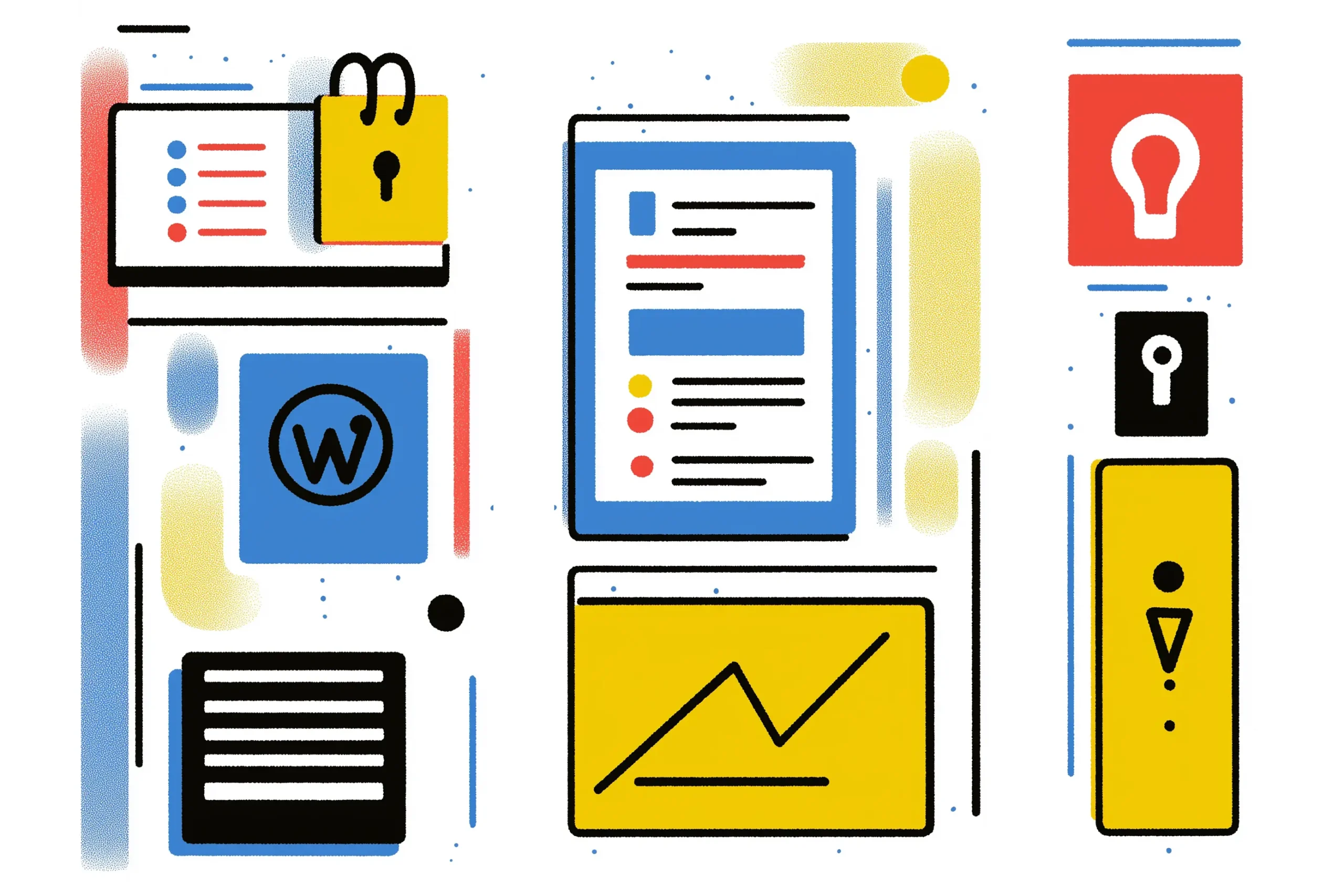As a WordPress entrepreneur, your website is the backbone of your business. Whether you’re selling products, offering services, or building a content-driven platform, ensuring your site is protected with automated backups and security for WordPress entrepreneurs is critical. But what happens if something goes wrong—like a cyber attack, accidental deletion, or server failure?
In this comprehensive guide, we’ll dive into how automated backups and security for WordPress entrepreneurs can be your best line of defense. We’ll cover everything from selecting the right tools to implementing best practices, so you can safeguard your business and focus on growth.
John's Story: A Lesson in Website Security and Backups
Let me share my own experience. I run a WordPress-based eCommerce store that sells eco-friendly home products. Business had been going really well, and I thought I had things under control. I knew the importance of security and backups, but I figured the basic security provided by my hosting company was enough, and as for backups? Well, I made a manual backup every few weeks, so I thought I was covered.
Then one morning, I logged in and found my site offline. Initially, I thought it was just a hosting issue that would resolve itself, but as I started investigating, I realized my site had been hacked. The entire database had been wiped, and someone had injected malicious code into my files. Everything was gone— product listings, customer data, orders — everything.
The worst part? My last backup was three weeks old. I lost all the work I had done during that time: new product uploads, customer orders, everything. It was a complete disaster.
I spent days trying to restore the website, and while I eventually got it back online, the damage was done. I lost thousands of dollars in sales, and some customers never came back. That experience made me rethink my entire approach to website security and backups.
From that day forward, I implemented automated backups and security for WordPress entrepreneurs like me. I made sure my site was always backed up automatically, stored off-site, and I invested in stronger security measures to prevent anything like this from happening again.

Automated Backups, The Safety Net You Can’t Ignore
Automated backups are the foundation of any security strategy for WordPress entrepreneurs. They allow you to restore your website to a previous state in case of hacks, crashes, or accidental deletions—minimizing downtime and data loss.
Why Automated Backups Matter
Automated backups ensure that your WordPress site is regularly saved without you having to lift a finger. When properly implemented, they capture your site’s data in real-time or at set intervals and store it securely in a separate location, ready to be restored whenever necessary.
Had I implemented automated backups sooner, I wouldn’t have had to worry about losing weeks of data. Instead, I could have restored my store from a backup made hours or even minutes before the attack occurred.
Key Benefits of Automated Backups:
- Consistency: Backups happen on schedule, whether you remember them or not.
- Data Integrity: Your website’s entire structure, including files and databases, is consistently backed up.
- Peace of Mind: You’re always prepared for the worst-case scenario, and your business can recover quickly.
Security for WordPress Entrepreneurs: Protecting Your Livelihood
Website security is equally important as backups. The WordPress platform is targeted frequently because of its popularity. Cybercriminals often exploit outdated plugins, weak passwords, or unsecured login pages to breach websites.
For me, not having strong enough security measures in place was my downfall. If I had properly secured my website, the hack that led to my data loss might never have occurred.
Essential Security Measures
Here’s how you can fortify your WordPress website against threats:
- Use Strong Passwords and Two-Factor Authentication (2FA): Weak passwords are a hacker’s easiest way into your site. Use tools like LastPass to generate strong passwords, and enable two-factor authentication to protect your login.
- Keep Everything Updated: Outdated plugins, themes, or WordPress core software are vulnerabilities waiting to be exploited. Automate your updates or set reminders to keep everything current.
- Install Security Plugins: Use plugins like Wordfence or Sucuri to add firewalls, malware scanners, and login security. This step alone can thwart most brute force attacks.
Had I taken these precautions, especially installing a security plugin to scan for vulnerabilities, the malware infection that caused my site to crash might have been detected early on.

Implementing Automated Backups and Security for WordPress Entrepreneurs
Now that we’ve covered the importance of both security and backups, let’s look at how to implement these practices in your WordPress site.
Selecting the Right Backup Solution
When choosing a backup solution, focus on plugins or services that allow you to automate the process. Some top recommendations include:
- UpdraftPlus: Easy-to-use and packed with features, this plugin allows you to schedule automated backups and store them off-site (like Google Drive or Dropbox). (link here)
- BlogVault: This premium solution offers real-time backups and is ideal for high-traffic or eCommerce sites.
- Jetpack Backups: A good all-in-one solution for WordPress, offering real-time backups, malware scanning, and one-click restores.
Each of these tools will enable automated backups and security for WordPress entrepreneurs, ensuring your site is always protected.
Strengthening Security with Plugins
Plugins like Wordfence or iThemes Security can help automate key security functions. These tools monitor your site in real-time, blocking malicious traffic, scanning for malware, and alerting you to any potential threats.
Additionally, limiting login attempts and implementing two-factor authentication will make it harder for hackers to gain access to your site.
Avoiding Common Mistakes in Backup and Security Management

While implementing automated backups and security for WordPress entrepreneurs is crucial, it’s equally important to avoid common mistakes that can undermine your efforts.
Relying on On-Site Backups Only
Many entrepreneurs, like I once did, rely on backups stored on the same server as their website. This is dangerous because if the server is compromised (e.g., in the case of a hack or hardware failure), both your site and its backups could be lost. Always use off-site storage, like cloud services or remote servers, to ensure your backups are safe.
Ignoring Backup Testing
Having backups is not enough. You must regularly test them to ensure they work. If I had tested my backup before the crisis, I might have realized how outdated it was and taken action to update it sooner.
Overlooking Real-Time Backups for Dynamic Sites
If your website frequently updates—whether due to customer transactions, new blog posts, or product uploads—you need more than daily backups. Real-time backups, like those offered by BlogVault, ensure that any change is backed up immediately, minimizing data loss in case of an emergency.
Choosing the Right Hosting Provider for Security
Your hosting provider plays a significant role in your site’s security. Look for providers that offer features like:
- Built-in firewalls
- Automatic backups
- DDoS protection
- SSL certificates
Managed WordPress hosting providers like Hostinger, Siteground, Bluehost or Kinsta specialize in security and performance optimization for WordPress sites, which is a great option for entrepreneurs like me, who want peace of mind and technical support.
Conclusion - Stay Protected with Automated Backups and Security for WordPress Entrepreneurs
As my story illustrates, automated backups and security for WordPress entrepreneurs are non-negotiable. Losing your site’s data or suffering from a security breach can be devastating for your business, but with the right tools and practices in place, you can ensure quick recovery and minimize losses.
- Automate your backups with reliable plugins like UpdraftPlus or BlogVault.
- Strengthen your security by using strong passwords, enabling two-factor authentication, and installing security plugins.
- Choose the right hosting provider to ensure server-level security and consistent backups.
- Test your backups regularly to confirm that they work and are up-to-date.
By following these practices, you’re not just protecting your WordPress website—you’re protecting your business, your revenue, and your reputation. With automated backups and solid security measures in place, you can focus on growing your business, knowing that your website is always safe.
By keeping automated backups and security for WordPress entrepreneurs at the forefront of your strategy, you’ll avoid the costly and stressful situations that I faced, ensuring the success of your online business for years to come.




